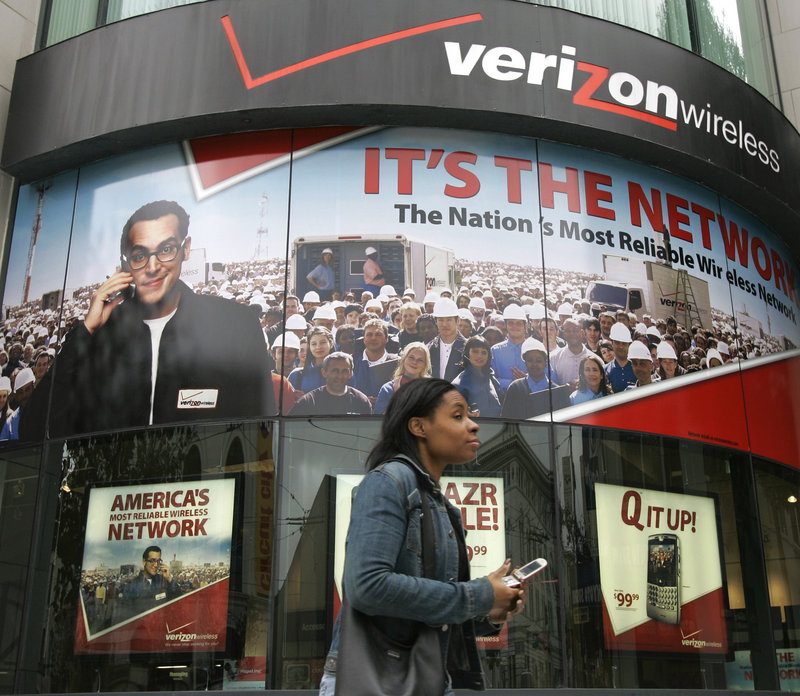WASHINGTON – The Federal Communications Commission wants cell phone customers to know: It can hear you now.
Consumers are complaining in record numbers about their wireless bills, and the FCC has promised to act. Next week, the agency will unveil a proposal to address “bill shock” by requiring that carriers notify users of overcharges and sudden increases in their bills.
But advocacy groups say the FCC has barely begun to address the massive problems generated by increasingly bewildering phone bills.
MULTIPAGE PUZZLES
As cell phones are “bundled” with television and Internet services, and with the exploding number of applications available for smart phones, consumer groups say bills have become multi-page puzzles. They complain of confusing language, third-party charges, mystery fees for data and other services — all amounting to monthly totals that aren’t what a user signed up for at point of sale.
The recent announcement that Verizon Wireless wrongly charged 15 million customers for data fees and will shell out $50 million in reimbursements doesn’t help public sentiment.
“This is only one case that made the light of day,” said Carl Hamann, a resident of Stamford, Mich., who believes he was one of those Verizon customers.
He said he was charged $1.99 for data he never signed up for last January and February. He’s been charged for data each month over the past year, even though he’s only signed up to place and receive voice calls.
Hamann said he put a block on his account so he and his 20-year-old son can’t use text and data services. Still, he got billed $73.65 for data in June and $68.25 in July.
All told, he’s called Verizon’s customer service each month for what he said was more than $300 in erroneous data services.
“This may not be a lot for one customer, but then look at all their customers affected and you do the math,” Hamann said.
Verizon said it would not comment on a specific case. It also declined to comment on the FCC’s ongoing investigation into its billing practices.
PIGGYBACKING PROBLEMS
Small “mystery” charges are among the most common errors on cell phone bills, according to Validas, a Texas-based company that audits telecom bills for corporations and individuals.
Edward Finegold, Validas’ chief analytics officer, said one growing problem involves third parties, such as a text-messaging service or ringtone provider, piggybacking onto someone’s phone bill.
For example, a user may send a text message to an outside service through an offer in, say, a video game, expecting a one-time charge. But Finegold said the fine print allows the service to automatically trigger a monthly subscription fee.
“None of this is illegal, but most people would expect that if you have a trusted relationship with your carrier, it would have strict standards on third parties who add charges to its bills. But that is not happening,” Finegold said.
Once in a while, the billing errors are extremely costly, Finegold said. He said his company discovered that one of its Fortune 500 customers was not getting a $133,000 monthly credit that had been promised by its cell phone provider for signing up additional lines.
The FCC already has rules requiring truth-in-billing practices and barring the practice known as cramming, when companies stuff mystery charges into bills.
COMPLAINTS BURGEON
But the agency has struggled to keep up with changes in technology and the rising tide of complaints.
In the first quarter of 2010, the FCC received 5,130 inquiries on wireless billing and other issues, an increase of 28 percent from the same period a year earlier.
In a survey this year, the FCC found that 30 percent of users said they experienced “bill shock,” with sudden increases from data overcharges and other services that they found only when they received their bills.
“Considering more and more people are going to wireless-only these days, it’s becoming a bigger and bigger problem, and people feel like they are banging their heads up against a wall because they also feel like they rarely get their billing problems resolved,” said Chris Morran, senior editor at Consumerist.com, a website owned by the nonprofit Consumers Union advocacy group.
Trade group CTIA-The Wireless Association has warned against regulation or legislation of billing practices. It opposes proposed “bill shock” legislation, introduced by Sen. Tom Udall, D-N.M., that would require cell phone carriers to notify customers by e-mail or text message — free of charge — when they have used 80 percent of their monthly limits.
The group said customers have many ways to track their minutes and data usage. And firing back at criticism of their own billing practices, CTIA said in a statement about Udall’s bill: “This bill has the potential to cause customer confusion and frustration.”
Send questions/comments to the editors.



Success. Please wait for the page to reload. If the page does not reload within 5 seconds, please refresh the page.
Enter your email and password to access comments.
Hi, to comment on stories you must . This profile is in addition to your subscription and website login.
Already have a commenting profile? .
Invalid username/password.
Please check your email to confirm and complete your registration.
Only subscribers are eligible to post comments. Please subscribe or login first for digital access. Here’s why.
Use the form below to reset your password. When you've submitted your account email, we will send an email with a reset code.